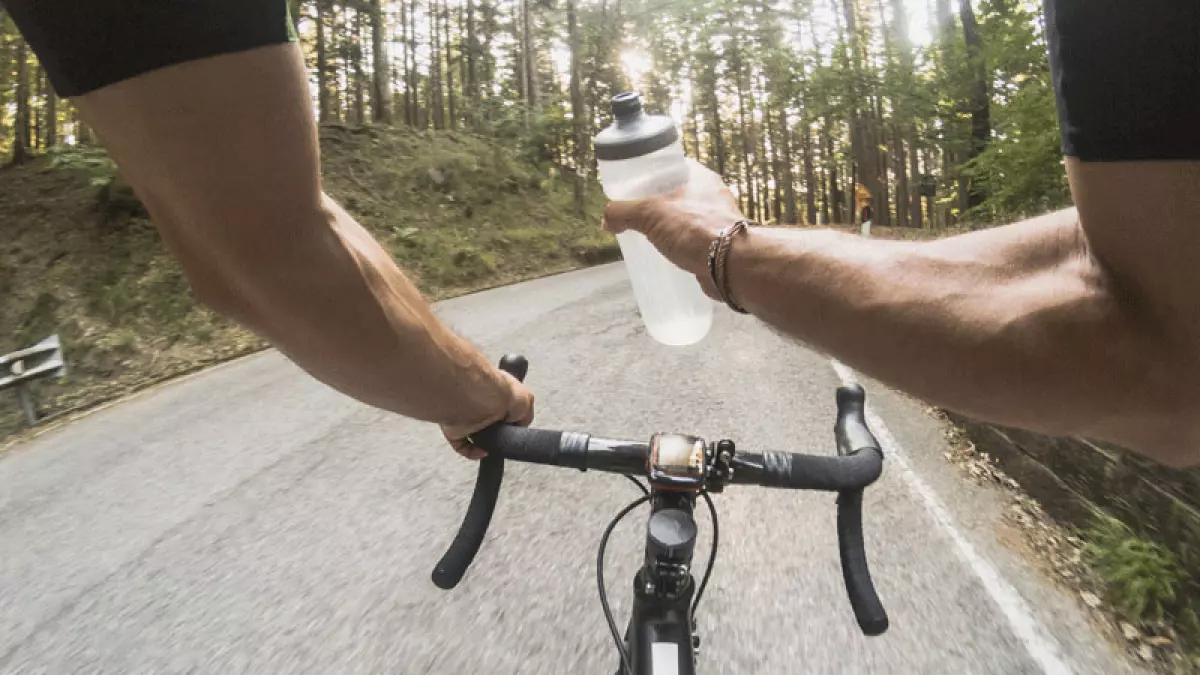 Image: Cyclist view drinking from water bottle
Image: Cyclist view drinking from water bottle
Introduction: We all know that staying hydrated is important, especially when the temperatures rise. Whether you're playing sports, traveling, or just enjoying some time in the sun, getting enough water is crucial for your overall health. In fact, it's not just about quenching your thirst - staying hydrated plays a vital role in keeping your heart healthy and your body functioning at its best.
The Importance of Hydration
Drinking enough water ensures that your body stays properly hydrated, which in turn helps your heart pump blood more efficiently. When you're well hydrated, your heart doesn't have to work as hard, reducing the risk of heart-related issues. Additionally, proper hydration supports the optimal functioning of your muscles, enabling them to work efficiently and preventing fatigue.
Dehydration, on the other hand, occurs when your body doesn't have enough water. This can lead to various problems, such as excessive thirst, dizziness, fatigue, swollen feet, headaches, and even life-threatening conditions like heat stroke. Therefore, it's crucial to prioritize hydration, especially during hot weather or when engaging in physical activities.
Determining Your Water Intake
So, how much water do you really need? The answer depends on several factors, including the climate, the intensity and duration of exercise, and the clothing you wear. If you sweat a lot, you'll need to drink more water to replenish the fluids lost. Certain medical conditions like diabetes or heart disease may also require increased water consumption. It's worth noting that some medications can act as diuretics, causing increased urination and fluid loss.
Interestingly, relying solely on thirst is not an accurate indicator of hydration status. By the time you feel thirsty, you're already dehydrated. Instead, a simple tip is to pay attention to the color of your urine. Pale and clear urine signifies that you're well-hydrated, while dark urine indicates the need to drink more fluids.
For athletes or those exercising in the hot summer months, another useful technique is to weigh yourself before and after physical activities. The weight lost through perspiration can be an indicator of how much fluid you need to replenish. Approximately, for every pound of sweat lost, a pint of water should be consumed. For instance, during a summer football practice, it's not uncommon for players to lose 5 pounds or more of sweat.
Water: The Best Hydration Choice
When it comes to staying hydrated, water is undoubtedly the best choice for most people. Not only does it quench your thirst effectively, but it also has numerous health benefits. While some foods like fruits and vegetables can contribute to your water intake, it's essential to prioritize drinking water itself.
In certain situations, such as high-intensity exercise in hot weather, sports drinks with electrolytes can be beneficial. However, it's important to be mindful of their sugar and calorie content. For optimal health, it's recommended to consume water during exercise and then enjoy a healthy snack like orange slices, bananas, or a small handful of unsalted nuts once you're done. Fruit juices, sugary drinks, and caffeinated beverages should be avoided, as they can be harsh on your stomach, especially when you're dehydrated.
Hydration for Everyone
It's vital to remember that hydration is not solely important for athletes or those engaging in physical activity. It plays a significant role in everyone's health, regardless of age or lifestyle . Here are some situations where staying hydrated becomes even more crucial:
- Sitting in the sun on a hot or humid day, even if you aren't exercising.
- Dealing with a heart condition.
- Being over the age of 50.
- Being overweight or obese.
- Traveling.
Conclusion: Staying hydrated is a key component of maintaining good health. By ensuring that you drink enough water, you support your heart, muscles, and overall well-being. Remember to listen to your body's signals and prioritize hydration in every aspect of your life. Stay healthy, stay hydrated!


















